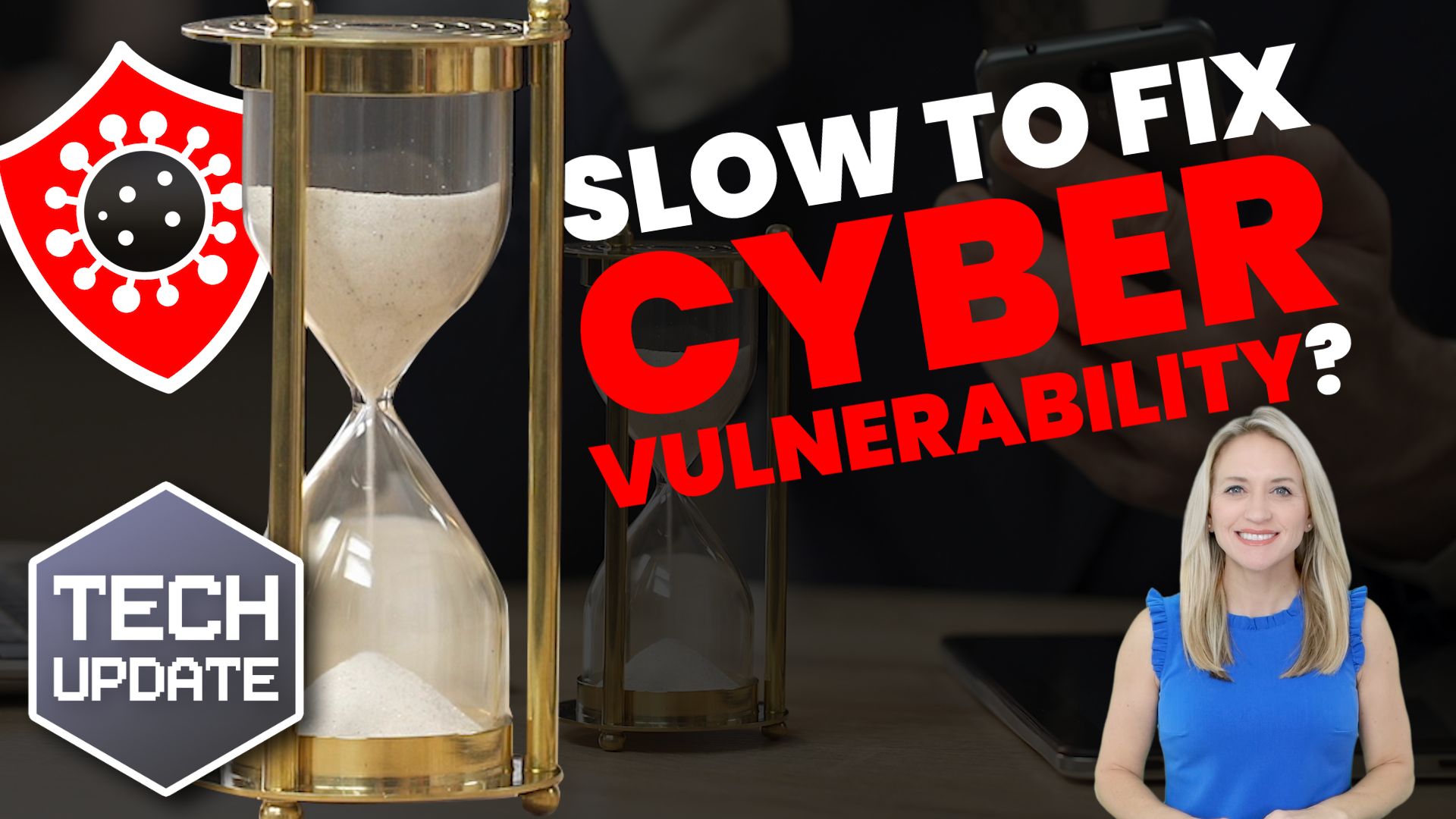Imagine you’re watching the news and see that a criminal is targeting houses in your neighborhood.
Would you leave your front door unlocked tonight?
I wouldn’t think so.
Yet this is essentially what many businesses do when they put off fixing vulnerabilities in their systems. And it happens a lot, with over two-thirds of businesses taking more than 24 hours to address serious security issues.
This is a worrying statistic. Because the longer vulnerabilities remain open, the greater the risk of cyber attacks, data breaches, and major disruptions.
So, what exactly is a vulnerability?
In simple terms, it’s a weakness in your system (like outdated software or misconfigured security settings) that cyber criminals can use to gain access to your business data. These weaknesses are often flagged by security tools. But responding to them fast enough is where many businesses fall short.
Many businesses have IT staff. But they can get bogged down by manual processes, wasting hours trying to make sense of incomplete data or juggling multiple tools that don’t talk to each other. This slows down response times and increases costs… while your business remains exposed.
The problem is this: Every hour a vulnerability is left unaddressed is another hour cyber criminals have to exploit it.
Luckily, there’s an easy solution. Partnering with a reliable IT support provider can make things easier. Instead of your team scrambling to identify and patch vulnerabilities, an expert technology partner (like us) can step in with smarter tools and faster processes. We combine automation and expertise to identify risks, prioritize what needs fixing, and respond quickly to make sure your systems are secure.
Cyber criminals are always looking for ways to exploit weaknesses. Don’t give them the chance.
If keeping on top of vulnerabilities feels overwhelming, let us make it simple for you. Get in touch.




